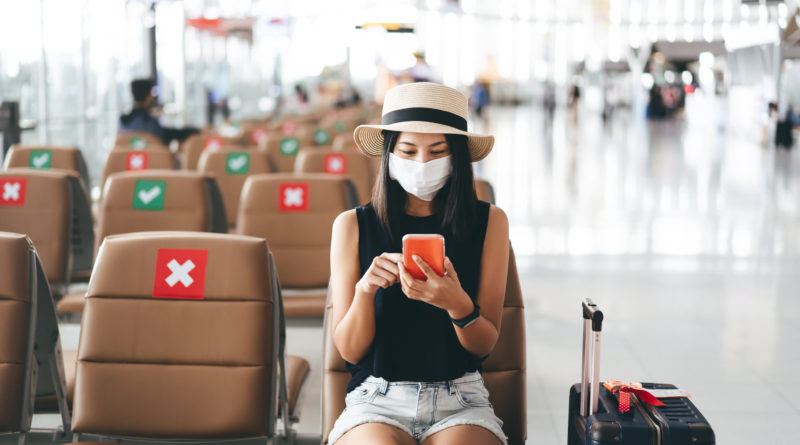Flying for July 4? Here’s Your COVID Safety Checklist
4,171 total views, 1 views today
Travel for the long weekend may be tempting, but airports and planes may still be hotspots for the spread of COVID-19 this summer season. The Centers for Disease Control (CDC) and World Health Organization (WHO) still recommend that all people, vaccinated and unvaccinated, remain vigilant regarding all COVID-19 procedures safety procedures. Below, learn what you should keep in mind for a COVID safety checklist.
Wear a mask
It’s still required that all people wear masks on any form of public transit and refrain from touching the mask during transit. For everyone vaccinated and unvaccinated, it is asked that masks be worn at all times in airplanes, where eating or drinking are prohibited. Travelers are encouraged to eat and drink before their airport arrival.
Social distance and self-quarantine
All travelers should be mindful of their space and that of other travelers. People should continue to socially distance at least two arms lengths apart from each other when possible. Travelers must dedicate themselves to serious self-monitoring for early-onset COVID-19 symptoms such as headache, fatigue, sore throat, and fever. Those who have recovered from COVID-19 in the past three months may not need to self-quarantine after returning from international travel, but they must show documentation as proof of recovery.
Take a COVID-19 test before your departure
The CDC recommends that unvaccinated people undergo a viral test for COVID-19 one to three days before their departure. People should also get tested three to five days after their arrival due to the possibility of contracting COVID-19 and its variants.
The CDC advises unvaccinated travelers to self-quarantine for a week to 10 days if they cannot be tested. Travelers should also be tested one to three days before their return and one to three days after their return. It’s best for unvaccinated people to refrain from travel unless it’s necessary or in case of a serious emergency.
Separate rules for international travel
For vaccinated people, most of the same precautionary procedures will still apply for domestic travel. International travel is only being made available to those who have both doses of the Pfizer vaccine or the Moderna vaccine (or are fully vaccinated through other Food and Drug Administration-approved vaccination regimens). To travel internationally, you must be considered fully vaccinated, with two weeks having passed since your second shot.
Predictions and lessening of restrictions
Several airlines have lifted middle seat restrictions and have recommended double-masking for more protection against COVID. That said, airplane filtration systems are known to filter out air at rates so rapid that airborne spread is less likely.
Additionally, some scientists predict a drop in the number of COVID infections among both travelers and non-travelers based on people being outside more during the warm months. With the hottest season of the year in full swing, some scientists and sociologists have predicted, using patterns from data shown in 2020, that there will be lower rates of infection and spread.
Will you be flying for the Fourth of July? If yes, have you checked everything off this checklist? Share your thoughts in the comments!

